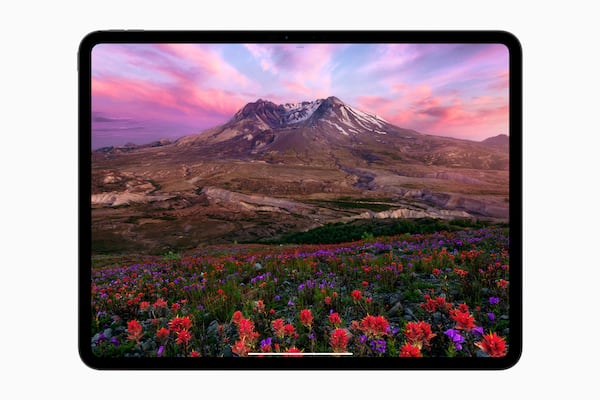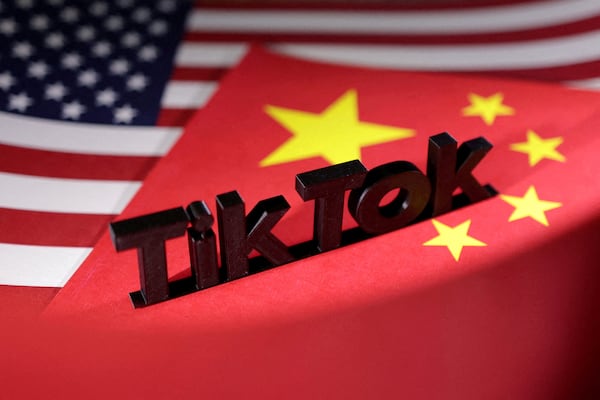
Hello there,
The phrase ‘FinTech’ is used so frequently that it often starts to be classified as a mere buzzword, when in reality, there’s a lot of substance behind it.
That much was clear when thousands of attendees packed the second Dubai FinTech Summit.
During the opening remarks, as a video played before a packed auditorium, a less prominent phrase was mentioned, "empowering the unbanked".
According to The World Bank, more than 1.7 billion people in the world do not have bank accounts.
Although FinTech conjures up images of new banking apps and crypto financial services, the true vision of FinTech, a combination of the words finance and technology, is making it easier than ever for people to access banks, access capital and access opportunities.
FinTech is alive and well, and we’re all better off for it.
The Big Story
iPads, AI and uncertainty

In brief | Apple's iPad finally received a refresh that many analysts and customers had been longing for, but in the process, the company stepped into the anxieties and fears that cross the minds of many when it comes to the topic of artificial intelligence. We'll discuss more on that in a moment.
For several months before the recent iPad launch, some pundits had wondered if the California-based technology firm had lost interest in the tablet product category. They also wondered if Apple had focused too much attention on its Apple VisionPro, and too little on the booming AI sector.
The reality couldn't be further from the truth. Apple's iPads showcase the company's quiet but certain investment and research into artificial intelligence, as well as the CPU technology that underpins all those AI features.
That said, Apple introduced the iPads with a minute-long video, titled 'Crush!', which depicted musical instruments, paint cans, brushes, record players, video game consoles, easels and metronomes being destroyed between two metal blocks, only to later reveal that all the destroyed items were replaced by the iPad.
Apple chief executive Tim Cook later posted the video on X as a way of promoting the new iPads, but his post quickly caused a backlash, with celebrities, creative professionals and others angry about the commercial depicting the destruction of so many instruments and tools.
“The destruction of the human experience, courtesy of Silicon Valley,” wrote actor Hugh Grant on X. Why did Apple do an ad that crushes the arts?“, actor Justine Bateman posted.
Why it matters | Make no mistake, Apple's latest iPad line-up is a technical marvel. The idea behind the ad is that the new iPad is powerful enough to pack all these items into a tablet, and then some.
What caused the backlash? I don't think it's necessarily the destruction depicted in the video, but rather, the timing of the video.
The world is consumed with a sense of fascination equally countered with a sense of fear as to what Artificial Intelligence will do to the creative endeavours that have inspired humans throughout history.
There's already ample controversy and speculation surrounding the human-created content that AI large language models are trained on, and that debate seems to be intensifying.
Quoted | “This will be studied in marketing courses for decades to come as an example of a totally botched ad: how did the creative team and leadership get it so wrong?”
– Cindy Hoedel, X (Formerly Twitter) user
Future in focus

Leveraging language | Translation unicorn DeepL is looking to increase its presence in the Middle East
Arab AI representation | Why the UAE has been selected for Hiroshima's AI Process Friends Group
Empathy and action | Zayed Research Centre and the London surgeon on a lifelong heart health mission
Predicting the future: Signal or noise?

TikTok delivered on its promise to sue the US Department of Justice after President Joe Biden signed a bill that seeks to force Chinese parent company ByteDance to divest the social media app from its portfolio. The China-based company says that its First Amendment rights are being breached.
This is a signal: It might seem odd for TikTok, owned by China-based ByteDance, to argue that its First Amendment rights are being breached, but the legal system in the US won't necessarily see it as strange.
The lawsuit probably won't be dismissed simply because of the location of ByteDance's headquarters.
It's also worth noting that previous attempts on a smaller level in the US to ban and curtail the use of TikTok have been successfully challenged and overturned.
While there are many examples of exceptions for absolute First Amendment rights, expect TikTok's attempt to overturn this divestment bill to get serious consideration, and potentially be successful.
In case you missed it

On board Sharjah's sky pods aiming to take UAE public transport to new heights
The new face of Saudi Arabia: How Vision 2030 changed the lives of the kingdom's people
How smartphones have magnified the effect of US campus protests
Can the production of palm oil ever be environmentally sustainable?
Opinion: AI avatars? I'm dead against the idea of digitally resurrecting my loved ones





